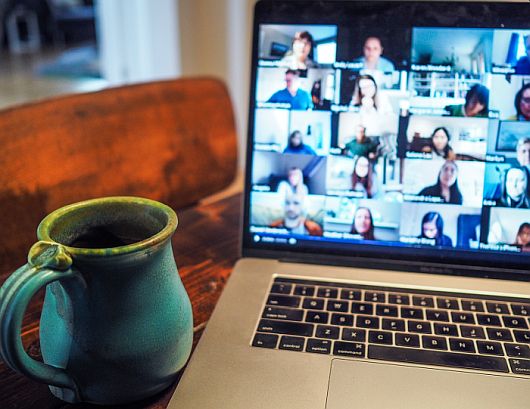Are there any jobs that the coronavirus pandemic has not affected in some way or another? I struggle to name even one.
The impact of the crisis on our working lives has been enormous. 856,500 people signed up for unemployment-related benefits in April according to the UK’s Office for National Statistics, and 9 million are currently on the government’s furlough scheme.
This article is one in a series (Connecting with Culture) from the the London Institute of Contemporary Christianity.
Those of us still in work have experienced massive upheaval in how, and where, we get our work done. For some, dressing for work means putting on face shields. For others, dining rooms with toys in the corner replace corporate meeting rooms with their flipcharts and coffee machines, while engineers face the challenge of maintaining social distance while repairing gas pipes or electricity cables.
As I’ve listened to friends and colleagues describe their own experience, the overarching impression has been of the dehumanising and the humanising effects of the crisis on their work and workplace.
Some of the most distressing stories come from medical staff, whose longing to reassure anxious patients through a sympathetic look in their eyes or a gentle touch on the arm has been shackled by PPE and social distancing.
But there have been humanising stories too. We have seen business leaders shed their formal office attire to record video messages for their employees from their (still tidy and tastefully decorated) front rooms. Others have revealed unusual musical tastes by sharing their ‘coronavirus playlists’ on Spotify.
Without the lockdown I wouldn’t have had a virtual tour of my boss’s garden, or seen (and heard) colleagues’ children or pets wander into Zoom meetings. I also wouldn’t have known which colleague to have on my team for lunchtime virtual quizzes.
So I’m not all that surprised to read research reported last month suggesting that 9 in 10 of us have felt closer to workmates during lockdown. Dare we hope that this sense of closeness and connection will remain, as shops, offices, and schools start to reopen? Will more of our business leaders see that authenticity and concern for employee well-being is good business practice for the long haul, not just for a crisis?
Perhaps we also have a crisis-created opportunity to shape our workplaces, as we reveal more of ‘Christ in us’ (Colossians 1:27), through service, love, humility, integrity, and kindness.
Nick Tatchell
Nick is an HR Consultant and Researcher into Sustainability and Behaviour Change
This article is one in a series (Connecting with Culture) from the the London Institute of Contemporary Christianity.






